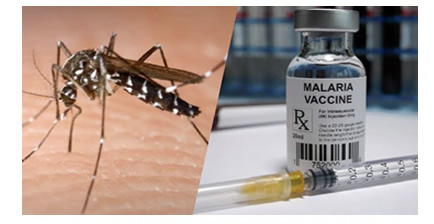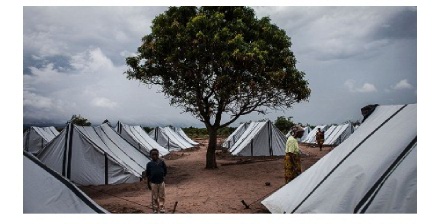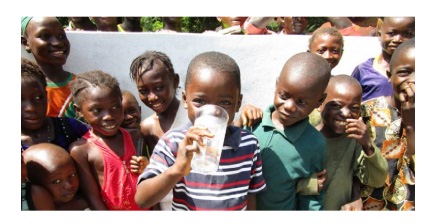
Projects / Tenders
Coalition of Concerned Citizens for African American Children (CCCAAC) understand that development of Central
Africa Region is directly proportional to the contributing factors
of under-development which is why we have several ongoing
Socio-economic and infrastructural developmental / assisted projects
in Central Africa region to the most underdeveloped communities and
areas towards achieving our vision of making central African states
a developing region within 2025.
The CCCAAC uses open public
procurement method to source/ award their projects for transparency,
fairness and accountability toward eradicating corruption in any of
our projects.
The supplier(s) / contractor are selected through
calls for tender through the Project Procurement Committee of the
organization on behalf of Departments, Directorates, and units
across the region.
The CCCAAC therefore announces the below
project sectors / call for supply proposals;
Infrastructure Development
Projects
The Central African Region is very
strategic in our development assisted mission in Africa because 2 or
3 of the world's emerging economies are in this region! This is why
we have been assisting the region in strengthening the democratic
governance over the past five years thereby enabling a platform for
stable growth and prosperity in most parts of the region.
With
this region having many poor countries, we understand that
infrastructure development in the sub-Saharan context will lead to
faster growth of the region. The CCCAAC has assisted with more than
50million dollars in total contribution to the regions
infrastructural developments because between 2005 and 2011, this
region has been riddled with conflicts thereby making basic
developmental infrastructure viz: telecommunications, electricity
and road infrastructure almost non-existent.
This strong
potential is also beset by a dire reality: the central African
region has the worst infrastructure on the African continent.
According to a report by the African Development Bank (AfDB), the
"region stands out on the continent as one with the least
infrastructure network, particularly transport and energy, which
impacts negatively on production capacities and regional trade as
well as social conditions and welfare."
Health Care development /
Rehabilitation Projects
With the recent Ebola
outbreak from this region the CCCAAC puts into focus the prevalence
of infectious diseases in this region amongst other health care
development projects.
In sub-Saharan Africa, infectious diseases
such as malaria and HIV/AIDS cause 69% of deaths. Though we can
deliver short-term aid and try to develop innovative vaccines or
treatments for these diseases, the real issue is the bad governance,
the poverty and instability in the region which has left the health
care system in a very poor state in this region.
To address this,
we are focused on assisting the governments of this region and
direct action in rural communities building better healthcare
infrastructure in this region.
Refugees / IDP Rehabilitation Projects
The recent refugee crisis in the Arab world and Europe has taken the
spotlight off sub-Saharan Africa. But a new report by UNHCR reveals
that the situation in Africa from 2015 is alarming and remains grim.
Almost all of Africa is involved either by producing or receiving
refugees, or both.
The economic consequences of these conflicts
impede the social adjustment of refugees in their country of refuge
and/or the development of the countries involved. A great deal of
material resources are put to waste in conflict while nationals and
refugees alike live in poverty. This is why the CCCAAC is involved
largely in this region in several refugees/ IDP relief and
rehabilitation projects with almost 20million USD allocated for this
sector.
Malaria Prevention products
Malaria is a life-threatening disease spread to humans by some types of mosquitoes. It is mostly found in tropical countries. It is preventable and curable. The infection is caused by a parasite and does not spread from person to person. Symptoms can be mild or life-threatening. Mild symptoms are fever, chills and headache. Severe symptoms include fatigue, confusion, seizures, and difficulty breathing. Infants, children under 5 years, pregnant women, travellers and people with HIV or AIDS are at higher risk of severe infection.
Educational Development projects
With the CCCAAC
aim of making a sustainable change in the lives of vulnerable
communities and countries in Central Africa Region we understand
that this can only be achieved by EDUCATIONAL development because
education impacts health, economic growth, and food security. Across
the world, increasing the average level of higher education in a
country by just one year can add half a percentage point of growth
to gross domestic product.
The CCCAAC is involved in many
ongoing projects in this sector which includes rehabilitation and
building of new schools and colleges in rural villages and area
where the schools the students have to walk for more than 10km to
get to school, provision of several incentives materials to poor and
local villages to enable them come to school and provision of
educational materials/ stationery products to sponsor/ assist
parents in rural villages for the education of their children.
Foods/ beverages assisted
projects
The CCCAAC is equally focused on food
assistance efforts by providing life-saving emergency food
assistance to the most vulnerable during times of crisis, such as
conflict and natural disasters, and through development activities,
helps communities address the root causes of hunger so they can feed
themselves in the long term.
CCTV/security enhancement projects
In
Central Africa Region security is a major issue with the increase in
activity of BOKO HARAM destabilization of some of the regional
countries and internal crisis some pockets of the region viz;
Cameroon, central Africa republic, Chad, the CCCAAC is assisting
the region in provision of security enhancement / training of the
security agents and other related projects thereby sustaining peace
and stability which is needed for development / emergence.
Interested / reliable
suppliers are to contact the Procurement Committee for invitation to
tender in any of the above sectors for their perusal and proposal
toward a possible securing of the bid/project supply.
ONGOING projects

Malaria Prevention products
Malaria is a life-threatening disease spread to humans by some types of mosquitoes. It is mostly found in tropical countries. It is preventable and curable. The infection is caused by a parasite and does not spread from person to person. Symptoms can be mild or life-threatening. Mild symptoms are fever, chills and headache. Severe symptoms include fatigue, confusion, seizures, and difficulty breathing. Infants, children under 5 years, pregnant women, travellers and people with HIV or AIDS are at higher risk of severe infection.

Refugees / IDP Rehabilitation
A large part of our field activities are geared towards internally displaced people (IDPs) and refugees. With the number of people who have been forcibly displaced doubling over the last decade, their health needs continue to mount, and are not always met. Our roots were put down in the camps set up for Congolese and Republique centrafricaine refugees. CCCAAC has a long history of assisting and protecting these populations.

Community Water Project
We are really proud of the work we get to do with our partners in the area of WASH (water, sanitation, and hygiene), and HIV/AIDS. Our partners, both past and present, have done absolutely amazing work providing clean water and sanitation and hygiene solutions to thousands of families in sub-Saharan Africa. We’re often asked how much it costs to build a well, but there’s actually a lot more to consider when approaching the water crisis and the water projects that our partners implement in Africa.
